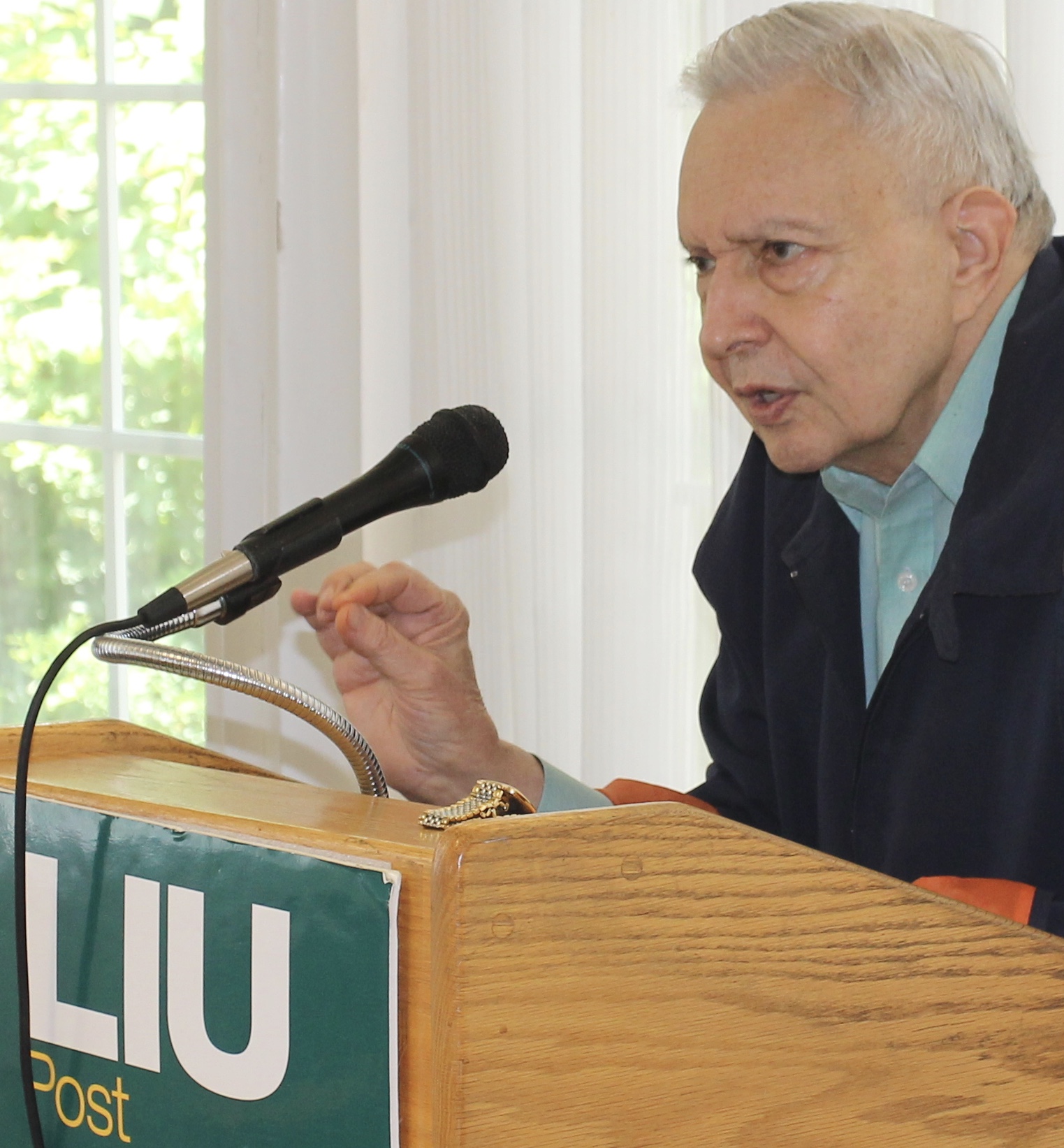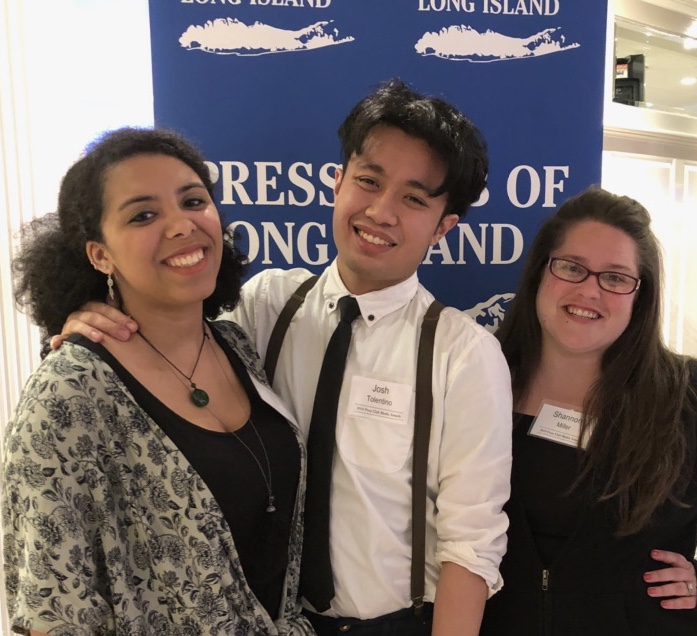The Hutton House Lectures: Where Town Meets Gown
(One in an occasional series)
For someone so well versed in the violence of human conflict, Professor Ralph Buultjens can sound remarkably even-tempered, almost low key, as he takes the long view during his packed Hutton House Lectures on the forces shaping our world.
Born in Sri Lanka to Dutch parents, Buultjens still speaks with a faint accent as he takes a soft-spoken approach to what he calls our history’s “explosive tendencies.” Whether he’s discussing if the 21st century will repeat the bloodbaths of the 20th or if the rapid evolution of technology will produce a modern-day Frankenstein monster that will unplug democracy, he never seems to raise his voice in anger or let his remarks drip with cynicism, let alone despair.
But no matter what the topic, this esteemed political scientist’s sharp intellect and keen understanding are always on display, and his quick wit comes with a fine-tuned edge that delights his audience as they hang on his every word. They readily appreciate his vast store of knowledge that he’s been generously imparting at LIU Post for almost 20 years. Buultjens’ morning and afternoon classes immediately sell out when registration opens for the session because attendance is limited to 100 people at Lorber Hall, while his special event talks routinely fill the 200 seats at Humanities Hall Room 119 on the main campus; he’s the only Hutton House lecturer to pack that venue.
“He’s a big draw for people who like politics,” said Dr. Kay Hutchins Sato, assistant provost and Director of Hutton House Lectures, which has been a staple at LIU Post for several decades. “Part of the reason, I believe, is that he uses his liberal arts background to put what’s happening in the world today into a historical perspective—so much so that people go away saying, ‘Aha!’”
For long-time friends Sylvia Sirlin and Sandra Glickman, both retired, driving from Melville to listen to Professor Buultjens in person is worth putting up with Long Island traffic—they’ve been coming for about six years.
“He’s just so knowledgeable, and he shares his knowledge so well,” said Glickman, who got her Master’s degree in education at LIU Post and went on to teach in Suffolk County public schools. Sirlin, who went to Columbia Business School and worked in Manhattan, said that she especially appreciates “not only what he talks about—and informs us about—but also the way he brings us into the topic. He’s just a delight.”
LIU can’t claim Professor Buultjens outright because he’s been a long-time senior faculty member of New York University. Before that, he taught at Cambridge University, where he was a professorial fellow. He’s written books on global politics and history, been a media commentator on foreign affairs, and won the Toynbee Prize for Social Sciences, named after the famous British historian Arnold J. Toynbee, whose other noteworthy recipients include George Kennan, Lord Kenneth Clark, Jean-Paul Sartre and Arthur Schlesinger, Jr., to name a few. He’s personally known the Shah of Iran and the prime minister of India, Indira Gandhi, with whom he had “an intellectual and philosophical relationship,” according to India Today magazine. In person he’s far from aloof; he’s very approachable—no ivory tower for him—just don’t ask him about himself because he’d much rather discuss the issues of the day.
In his lecture called “Politics & the Future: The World of Tomorrow,” he recounted how three times in the 20th century global leaders laid out ambitious plans for peace and prosperity, only to see them fail catastrophically. So, Professor Buultjens addressed his class, should we continue to strive for something better or surrender to the inevitable? The answer, he concluded, is that just as our forebears struggled to survive, we must continue their fight for what’s right, because without those who went before us, where we would be now? And just as importantly, he asked rhetorically, what kind of world will we leave for those who come after us?
“The most important features in world politics are the contests for world leadership—and this has gone on for a long time,” he said at his lecture about China, which, he noted, “should be the central concern of American foreign policy.” As Buultjens bluntly put it: “They have trillions—we are broke—and we borrow from them.” His listeners murmured in agreement.
China is not only the number one trading and manufacturing country on Earth, the professor noted, it also boasts the largest number of middle class people in the world. Now the Chinese leaders are trying to regain their domination of the past when their country was the most advanced civilization on the planet but through trade, not war. “So far,” he said, “its formula for success has worked.”
Looking at the adults seated before him in Lorber Hall on a hot summer day, he said, “Nobody’s bubble lasts forever.” But, he added, “some last longer than others.” As for the United States, Buultjens observed, “Our greatest opponent today is ourselves.”
For more information about all the Hutton House Lectures at Lorber Hall, call 516-299-2580 or click here.



